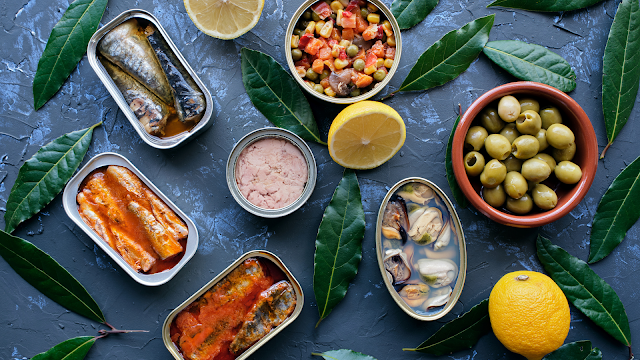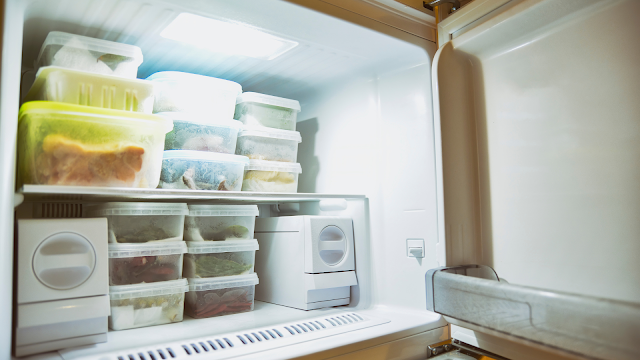The modern and up-to-date kitchen tends to be polluted with food leftovers, dried-out rice and noodles, degraded milk, and spoiled vegetables and fruit. The main reasons for these troubles are: - incorrect (or no) storage conditions after purchase, - ineffective coordination of stocks, - wrong selection for a particular recipe, - too strict expiration date rules.
Many people, especially in the developed world, waste food by simply buying too much of it. You can do some specific things to stop wasting food, though!
With these seven tips for reducing food waste in your kitchen, you'll be able to save money and reduce your impact on the environment simultaneously. Here are seven easy ways to get started today.
Repair instead of replacing
There's a chance that your non-working appliance or gadget is just in need of a simple repair. If it isn't too expensive to get fixed, go ahead and call a technician, as long as you have someone to watch over things while he or she works.
You may find that fixing something saves you money and helps avoid unwanted waste (for instance, if you had just bought a new phone after dropping yours in the water). This DIY trick also extends to other parts of your home.
When repairing any appliance, there are three highly crucial principles to observe. Never attempt to save time or money by breaking these principles. You won't rescue anything and risk injuring yourself or damaging the gadget.
- Before testing the appliance to determine the fault or any repairs, ensure the power and/or gas supply to the device are turned off.
- If an appliance's pieces are fastened together via screws, bolts, plugs, and other detachable fasteners, you can likely do any needed maintenance.
- Damaged or faulty appliance parts may usually be replaced more quickly and cheaply than they can be repaired by you or a professional.
- Freeze small amounts
- Use sealed containers to prevent freezer burn.
- Take inventory of what is in the freezer regularly because nothing lasts longer!
Check it out
Before bed, look at your refrigerator, cabinets, and pantry. This is an excellent time to ensure you're not buying anything you already have on hand. If you find something, move it to a new location or use it completely.
Keeping track of what you've got also ensures that if someone drops by unexpectedly, you won't offer them food they can't eat because you didn't check first. And don't forget to get rid of those older canned goods with outdated expiration dates; while they may still be safe to eat, they might not taste delicious!
Having a lot of food won't help you much if you don't know what you have. And keeping an inventory is necessary if you want to understand what you have at any given moment.
You should inventory three essential items daily: your freezer, refrigerator, and pantry. However, there are several ways to keep track of your inventory. Get one that fits best because you'll use it frequently!
Ensure all food products are stored in the proper container and temperature.
Can it?
Canning prolongs the life of food by halting the natural decomposition process caused by microorganisms in food. This is accomplished by boiling and capping.
Canning does not use cans but instead stores food securely enclosed in glass jars. Although food preservation can be easy, canning requires more money and effort.
The water-bath technique is the most basic kind of home canning. This approach is appropriate for meals with a high acidity level. Jars are filled with acidic vegetables in vinegar, such as tomatoes, berries, or cucumbers, and then sealed with a cover.
They are then placed in an open bath of water and cooked. This process forms a seal under the lid, driving the air out and generating an acidic atmosphere where bacteria cannot thrive.
Rotting food takes up a lot of space, and it can also be harmful to your health. So, you should always check to see if an item is still edible before tossing it. If you suspect an item is no longer safe to eat, it's time to throw it.
Freeze it
A waste-free kitchen's best friend is the freezer. Freezing fruit, meat, dairy, and even barely beaten eggs is the same as clicking the stop button. Dark green leafy vegetables that are beginning to wilt are my favourite vegetables to freeze. Just cut them up, place them in a plastic bag, and freeze them before using them by hand in smoothies, sauces, and curries.
Here are some pointers to help you become a tremendous food-freezing champion:
- Freeze in portion
- Keep it airtight
- Leave room for liquids.
- Blanch
- Label and Organize
If you're going to cook or bake something but only use part of it, freeze what you don't need. If a recipe calls for an egg and you only want half of one, crack both into a small bowl and beat lightly with a fork. Spoon out what you need and then stick the rest into your freezer bag, seal it up and freeze until next time!
Eat or Use Leftovers Wisely
Making extra at dinner means there's always something to reheat later on—and it also means that you can avoid wasting excellent food. If leftovers don't work with your schedule, try packing them up and storing them in a reusable container or bag so they're ready when you are. Keep an eye out for expiration dates; if your food is nearing its last leg, use it before it goes bad.
Find methods to use old food rather than throwing it away. Soup stock may be created from vegetable leftovers and peels. Tender apples or berries work well when cooked with oats.
The stale loaf can also be used to produce croutons or omelette strata. Slightly wilted veggies work well in soups and stir-fries. One of my favourite parts about soup is that it can be made of almost anything.
Plan meals better
If you're constantly throwing away veggies that have gone bad, or if you find yourself with a freezer full of mystery meat and three cans of beans, it might be time to get your meals planned out better. Before your food spoils, ensure you've thought about what to do with it.
Meal planning is one of the most efficient techniques to decrease food waste and save money on food expenditures. It takes a little effort to organize, but it makes life a lot simpler when you shop because you have a grocery list, and it also makes life easier at home since you know what you're going to prepare.
Shop more often but less expensively
If you're used to going to a farmers market every weekend and buying high-end, fresh produce, consider shopping more often but less expensively. Seek a local CSA that provides produce shares at discounted prices or purchases from a discount grocery store like Aldi or Save-A-Lot.
These stores stock much of their inventory close to expiration; by purchasing these items, you can take advantage of best-if-used-by dates and reduce food waste.
Conserving food in your kitchen begins with a mental shift. It entails being deliberate about your purchases and preparing ahead for meals. The main idea is to create a meal plan for the week, which will save you time at the grocery store.
To begin, think of what meals you'll be preparing that week, how many people you'll be feeding, and what type of leftovers you'd want. Then, look through your freezer, pantry, and refrigerator to see what you can use. After you've planned your meals, calculate how much food you'll need and make a shopping list.
Final Thoughts
By implementing these steps, you can reduce food waste, save money and help our environment. There is no best way to deal with food waste—what works best for you and your family may not work for someone else.
So go ahead, try it and tell us about it by posting comments below! What are some of your tips? Share them with us! Or connect with one of these leading organizations fighting food waste: City Harvest.








Post a Comment